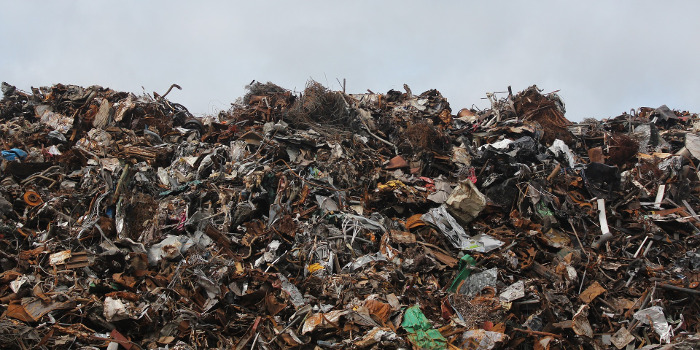Lasting legacy of landfill

The UK has 20,000 former landfill sites. Almost 50 million tonnes of industrial, commercial and domestic waste is sent to landfill every year – enough to fill Wembley Stadium more than 50 times.
Now the process for waste disposal is very tightly regulated and registered providers have to keep meticulous records of what is being disposed of and where. However, this hasn’t always been the case.
No rules on rubbish dumps
For decades Britain filled large holes in the ground and discarded its waste with a “dilute and disperse” approach, having little long term consideration for the consequences.
In 1996 the government imposed a tax on waste being put into landfill. The Landfill Tax was the first recognition that increasing quantities of waste being disposed of into landfill had associated environmental impacts. Landfill tax was enforced through the Environmental Protection Act (EPA) which was created for regulating and licensing the acceptable disposal of controlled waste on land.
Living on landfill – a lasting legacy
A recent investigation by the BBC’s File on 4 has highlighted concerns from the Environment Agency that former landfill sites have left a (rather unpleasant) lasting legacy on space for new housing and coastlines.
Britain is running out of room for developing new houses, so former landfill sites offer land with potential for development, however many residents have concerns about the safety of such sites. Environmental and public health concerns have been cited in the new report, led by Prof Kate Spencer from Queen Mary University of London.
Cells from batteries, mercury and lead in soils and water systems, high concentrations of nasty chemicals have been found at sites. Some local residents have reported eggy or disinfectant type smells from nearby landfill sites and have been prevented from growing vegetables, fearing that the ground underneath their homes may not be safe.
Cleaner, greener future
Over 20 years since its introduction, the Landfill Tax still serves a single purpose – to reduce the amount of waste sent to landfill sites and to encourage recycling. It has been criticised for causing an increase in fly-tipping which costs for local authorities tens of millions of pounds to address every year, however it is widely understood to be an effective means of persuading consumers and businesses to seriously consider what they do with their waste.
With modern technology and more environmentally considerate engineering methods, land used for landfill can be remediated and made safe – although it comes at a significant cost.
Trusted and approved waste management
Since the introduction of regulation and licensing by the EPA there are now over 28 permits and licences required to control the use, treatment, storage, transport and disposal of commercial, residential and industrial waste to ensure that the health and environmental impact is minimised.
As a registered waste management provider, Ward recycles well over 90% of the commercial and residential waste it collects, to avoid sending it to landfill. As part of its waste management strategies for householders and businesses, Ward re-uses or safely disposes of domestic and office waste, metal and waste products from car scrappage including engine oil, diesel and other liquids. And, from its accredited waste disposal facility Ward can treat electrical and electronic waste, hazardous materials including asbestos and large household items such as fridges, computers and cookers.
Want to leave landfill behind?
For more information about WARD’s comprehensive and cost effective waste management services call our dedicated waste management team on 0345 337 00 00 or fill in our contact form for details waste removal services in your area.
